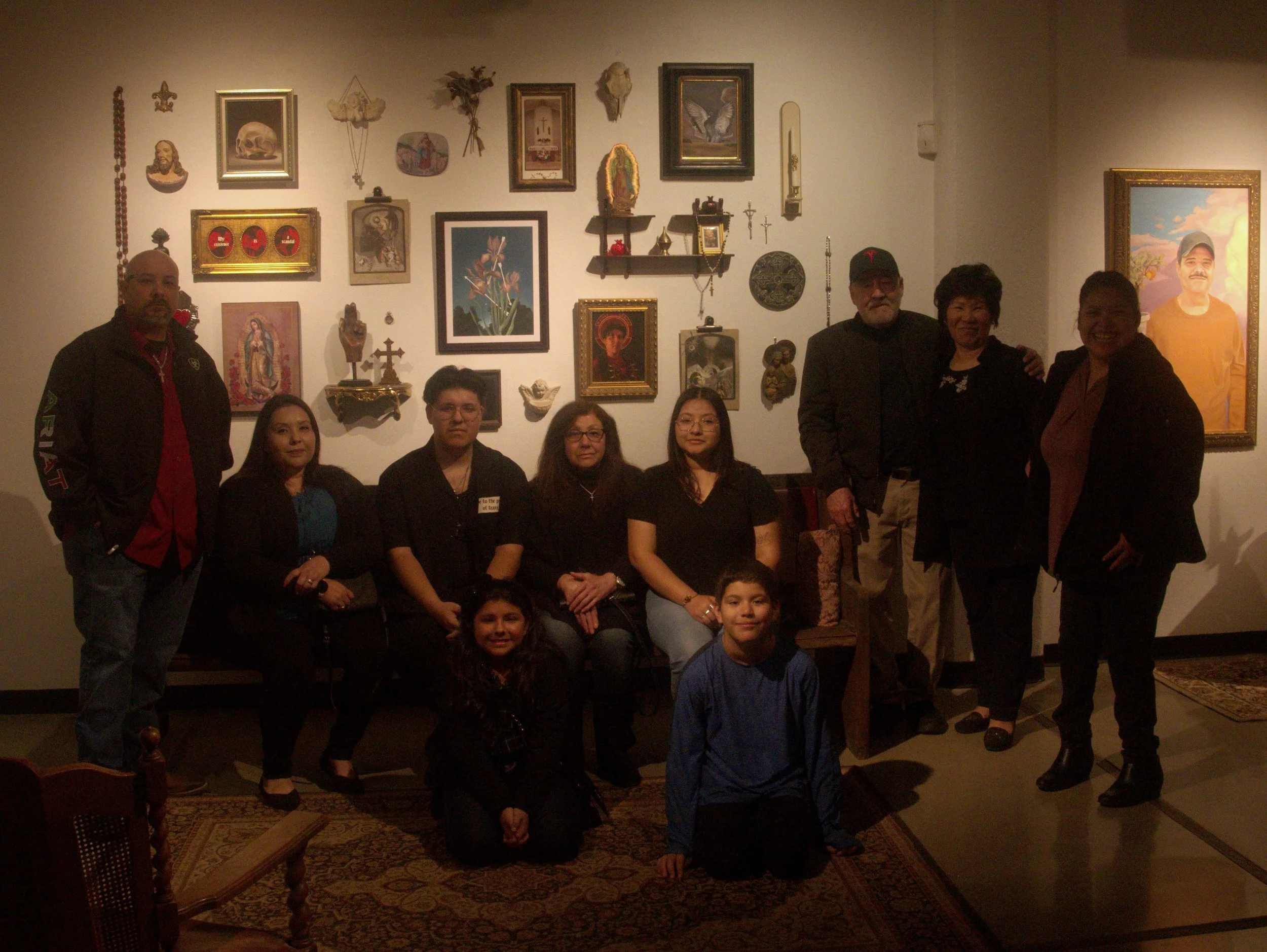About
Jose Soria (Born 2000, Fresno, CA.) received his M.A. in Art from California State University, Fresno in 2024. He is currently an adjunct professor at Fresno City College and Reedley College. He cofounded Paper Crane Gallery in Fresno, California, an organization that provided live drawing and painting events to the local community as well as hosted several group exhibitions. He was awarded the Edward O Lund Scholarship and studied with the Art & Empire course in London during the winter of 2022-2023 and has displayed his work in numerous galleries around the Central Valley. His working art studio is located at Broadway Studios in downtown Fresno where he’s been a resident since 2020. Here he displays his artwork in a gallery-like setting once a month for Fresno’s ArtHop.
His work pulls inspiration from Catholic iconography, as well as folkloric and pagan aesthetics. This is in an attempt to create subtle interactions that pass as both a glorification of the Church as well as a commentary on issues within it. Many of the issues addressed in his work include the religious and political intersections: debates about women autonomy, stigmas reinforced onto members within the LGBTQ+ community, as well as bring awareness to the abuse many children have endured by priests.
His work is also informed by the complex relationships that exist between religious, sexual, and cultural identity. Growing up in a traditional Hispanic household as a closeted Bisexual, he pulls personal memories and religious imagery from his youth and incorporates it into his life size figure paintings, assemblage, photography and woodworking. While the memories are specific to his own upbringing, they hold universal ideas of nostalgia, anxiety, trauma, love, and acceptance.
While pursuing his career as an artist, Jose has learned the strength in acknowledging his identities and what that meant, not only for his own life, but the many others who share these same experiences. Above all, his work is meant to be a vessel for anyone who grew up resenting their sexuality, especially in more traditional households. It is made to resonate with the sons and daughters of immigrants because they are the ones who are breaking generational trauma and are being strong even when showing weakness.
